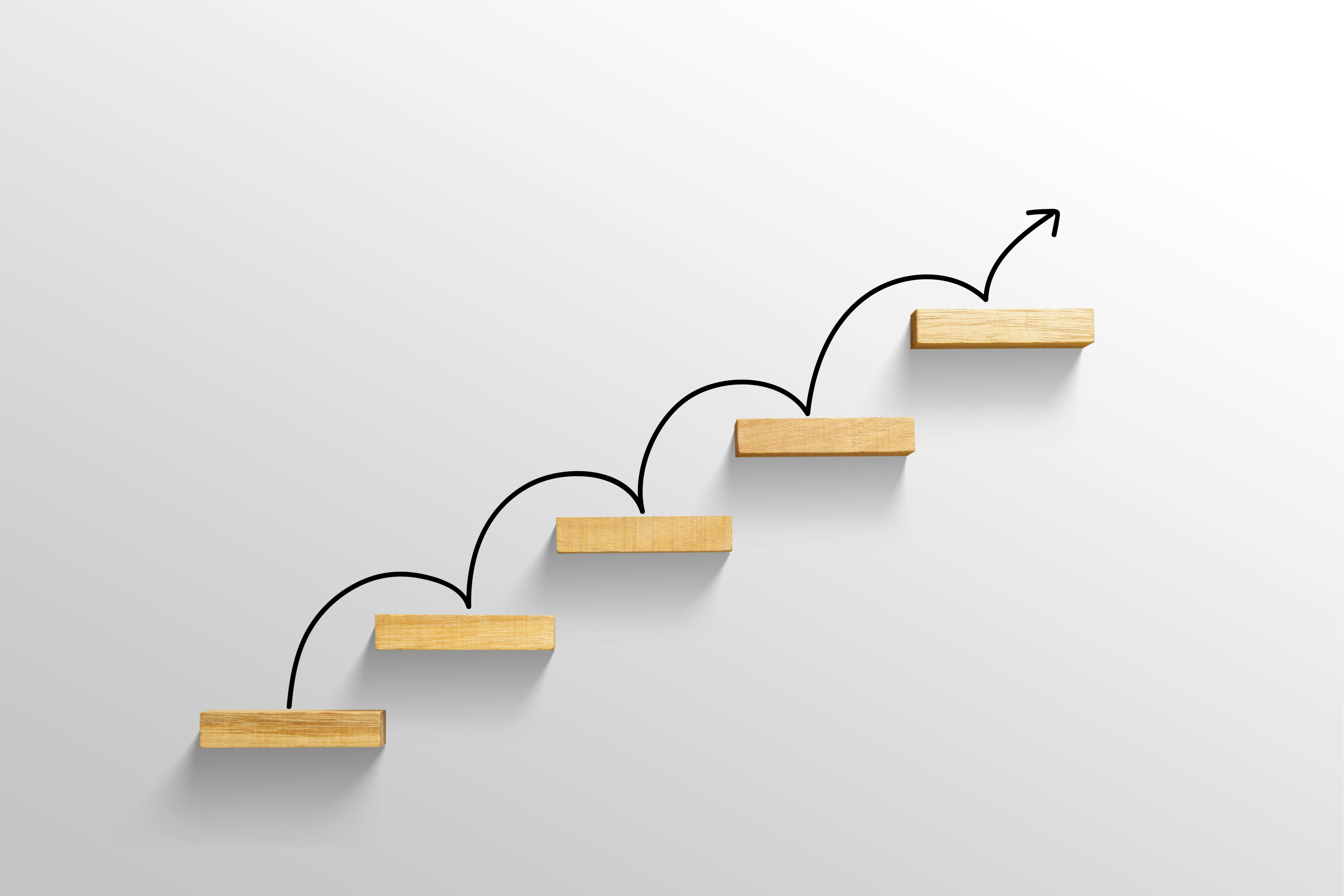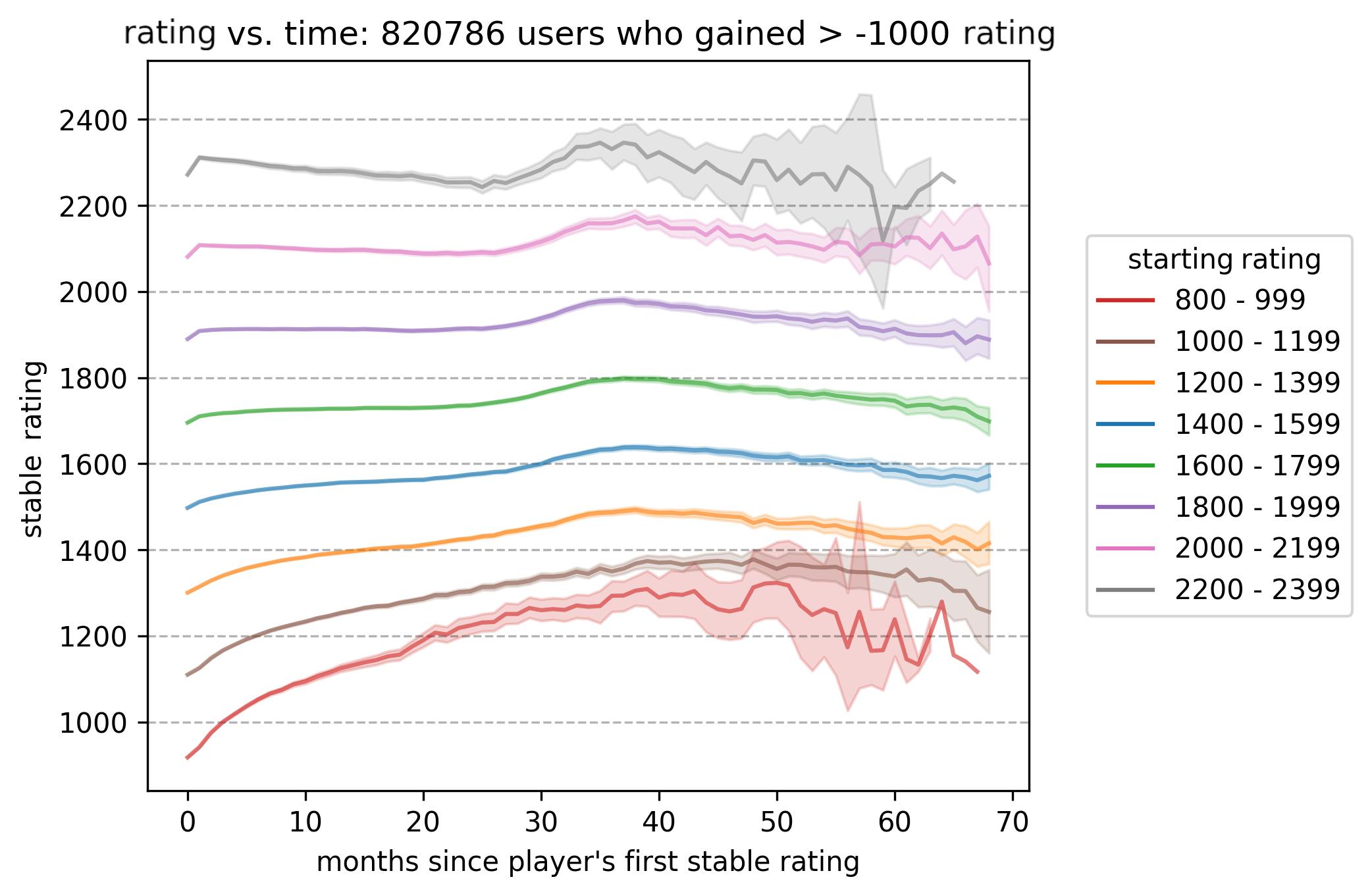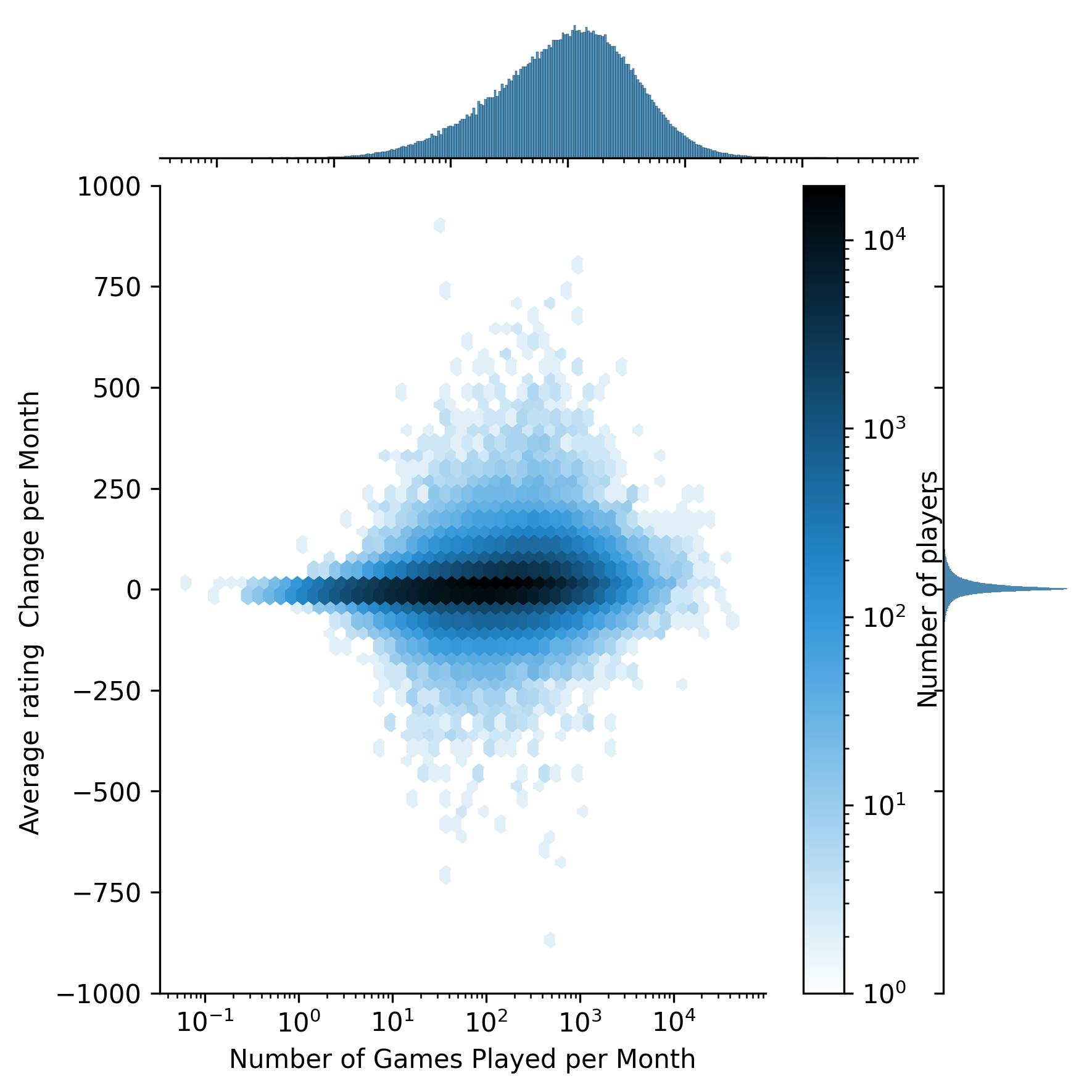How long does it take to "get good"?
An investigation of the Lichess database

A recent poster (@jcw024) on GitHub and Reddit tried to answer this question by using the Lichess games database. The database has served as a resource for many projects over the years, including Maia chess (a human-like neural network chess engine that's playable), and an analysis of whether the low time alarm makes people play worse. There's a full list at the bottom of the database page and we look forward to seeing what other cool projects people create! This article is an edited summary, but if you'd like to see the full details they are available on GitHub.
___
I've been a casual chess player for a few years now. Like most people who get into chess, one question that's been at the back of my mind is, like the title suggests, how long is it going to take me to actually get good at this game? Before we start getting into the data mining, we would first need to define what is "good at chess". Naturally, that's going to vary from person to person. If your definition of "good" is never losing, that's never going to happen (unless you're picky about who you choose to play or you're a computer). If your definition of "good" is better than most everyday people you would find off the street, then you would probably get there after spending 30 minutes learning how the pieces move.
For what it's worth, the data says the 90th percentile rating is at 1927. However, the distribution is calculated from currently active players, raising the 90th percentile to 2075 currently. For reference, GM Hikaru Nakamura (one of the world's top blitz players) was able to jump from total beginner (600 USCF ~1100 Lichess) to the 90th percentile (1800 USCF, ~2000 Lichess) in just 2 years (Jan 1995 - Jan 1997). So best case scenario if you're a chess prodigy, you can get into the 90th percentile in 2 years of serious study.
Given the ambiguous nature of this question, I decided to focus on improvement rate rather than trying to answer something like how long it takes to go from total beginner to grandmaster. Grandmasters don't represent the "normal" player progression almost by definition, the improvement of the average person is what I'm interested in, and there's also far more available data to work with.
For details of the extraction and analysis please see the full description on GitHub.
After extracting the data for rating per player over time (including games as white and black), filtering for one time control, calculating the monthly average, aligning everyone's starting dates, assigning the ratings into rating bins, and averaging the ratings by the rating bins, we get the plot below:

Rating vs time
From the graph, it looks like improvement rate depends a lot on what your current rating is. As one might expect, lower ratings have the greatest opportunity to improve quickly, while higher elo ratings will take much longer to see improvement. Most players in the 800-1000 rating range (about 6% of players) will see their rating jump up 100 points in just a few months of activity. Most players in the 1600-2000 range (27% of players) will take 4 years or more to move up 100 points though. The bump around the 3 year mark may be an artefact of the total data set containing 5.5 years of data. This means there will be far fewer players and data points by the 3 year point.
I also investigated whether players who played lots of games improved more than those with fewer games. It seems like no matter how the data is sliced up though, there does not seem to be a clear 1:1 linear correlation between improvement rate and number of games played. There's maybe a slight upward trend with rating gain vs games per month, but it seems to be a weak trend.

Net rating gain per month vs. number of games played per month
However, there does seem to be a sweet spot in the rating gain rate where a large portion of the players who have gained the most rating per month seem to cluster around 100-300 games per month, which comes out to a handful of games per day. That may be evidence that playing at least a few games here and there on a consistent basis will give the best chances at improving, but that could also be due to the fact that there are just more data points for players playing at that rate.
Regardless, the data does not give any indications that binging chess games like it's a full time job is going to make you a stronger chess player any faster than playing a few games per day on your lunch breaks.
So what does make you a better chess player? I can only assume that it takes additional study beyond mindlessly playing chess games (like many other skills in life). Perhaps by practicing tactics, studying chess strategy, or studying your games. That seems to be what all the top players do. I would love to take a look at player's tactics data or studying habits in relation to their improvement rate, but that data is not readily available/easily obtainable, especially at the scale of this dataset. As a project manager would say, that's probably out of scope for this project.